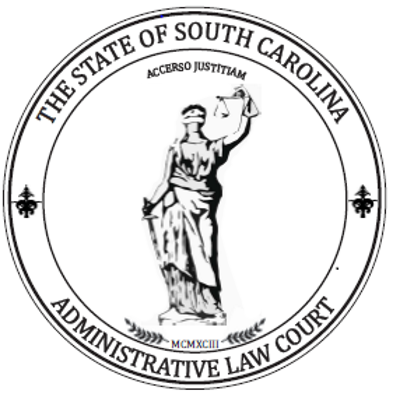ORDERS:
FINAL ORDER AND DECISION
I. Statement of the Case
This contested case results from a disagreement between Gift Plantation, Inc. (taxpayer) and the Charleston County Assessor (assessor) over a discount sought for tax year 1998 for multiple lots owned by the taxpayer. The parties exhausted the prehearing remedies within the assessor's office and before the Charleston County Board of Assessment Appeals and now bring this contested case to the Administrative Law Judge Division (ALJD).
Jurisdiction over this matter is in the ALJD under S. C. Code Ann. § 12-60-2540(A) (Supp. 1998) with this matter having been heard on April 20, 1999. After considering all of the arguments and evidence presented at the hearing held at the Edgar Brown Building, Columbia, South Carolina, no multiple lot discount can be granted.
II. Issue
For the 1998 tax year, may the taxpayer receive the discount available for valuing multiple lots as provided by S.C. Code Ann. § 12-43-224 (Supp. 1998) where the taxpayer files an application for the discount on October 6, 1998?
III. Analysis
Discount For Multiple Lots
1. Positions of Parties
While admitting that it failed to file an application for the multiple lot discount by May 1, 1998, the taxpayer asserts its failure should not result in a denial of the discount. The basis for its claim is that the taxpayer believes its October 6, 1998 filing was not untimely since the Assessor failed to provide the taxpayer with the application form needed to obtain the discount.
The Assessor argues his office has no duty to mail unsolicited forms to the taxpayer and that applications mailed by the Assessor in prior years were sent only as a courtesy. Further, the Assessor argues that even if a duty to notify does exist, that duty was met. Finally, the Assessor argues that an October 6, 1998 filing is still fatally late even if the Assessor had a duty to notify and failed in that duty.
2. Findings of Fact
I find by a preponderance of the evidence the following facts:
The taxpayer is the developer of a subdivision in Charleston County known as the Gift Plantation. Gift Plantation is subdivided into 121 lots with those lots first offered for sale in 1991. Beginning in 1992 the taxpayer applied for and received the multiple lot discount for each tax year of 1992 through 1997. For each of those years the Assessor mailed an application to the taxpayer, the taxpayer completed the application, and the application was timely filed with the Assessor. This pattern continued until tax year 1998.
For the tax year 1998, no applications were automatically mailed to any prior-filing taxpayers. Notice of this change in practice was given in 1997 in that when the Assessor mailed an application for multiple lot discount for the 1997 tax year, a letter accompanied the application stating that beginning with the 1998 tax year no applications would be mailed. The letter stated that instead of mailing applications, the Assessor would place a notice in the Charleston Post & Courier advising that the discount could be obtained by filing an application by May 1 of the tax year.
Consistent with the notice, the Assessor advertised in the Charleston Post & Courier on five occasions in March and four occasions in April, 1998 that the multiple lot discount was available for applications filed before May 1, 1998. The taxpayer, although doing business in Charleston, has its corporate headquarters in Easely, South Carolina and failed to see the notice.
Since no application was filed by May 1, 1998, the Assessor valued the lots of Gift Plantation without granting a multiple lot discount. The absence of the discount became apparent to the taxpayer in September of 1998 and resulted in a letter of protest to the Assessor dated October 6, 1998. Accompanying the letter of protest was an application dated October 6, 1998 for the multiple lot discount for the 1998 tax year.
The Assessor denied the application on the ground that the filing must have been completed by May 1, 1998. Likewise, the Charleston County Board of Assessment Appeals denied the protest on the same grounds. The matter is now before the Administrative Law Judge Division.
3. Conclusions of Law
The taxpayer essentially argues it should be allowed to file its application on October 6, 1998 since it reads S. C. Ann. § 12-43-224 (Supp. 1998) as imposing a May 1 deadline only when the Assessor has given the taxpayer the "forms provided by the county." In other words, a failure by the county to provide the forms leaves the filing period open until the forms are provided. Hence, since no forms were provided, the taxpayer argues its filing on October 6, 1998 was timely.
I am unable to agree with the taxpayer for two reasons. First, the statute's plain language does not give the result suggested by the taxpayer. Second, even if the language could be held less than plain the statute is in the nature of a deduction that must be read strictly rather than in the broad manner suggested by the taxpayer.
A. Plain Language of § 12-43-224
If a statute’s language is plain and unambiguous, and conveys a clear and definite meaning, there is no occasion for employing rules of statutory interpretation, and the court has no right to look for or impose another meaning. Paschal v. State Election Comm’n, 317 S.C. 434, 454 S.E.2d 890 (1995). Under such circumstances, the court must apply the terms of the statute according to their literal meaning. Id. Indeed, well established law directs that if the statute under review is a taxing statute (as is the one under review in this case), the words should be applied according to their ordinary and plain meaning. Beach v. Livingston, 248 S.C. 135, 149 S.E.2d 328 (1966).
Here, the statute requires in plain language that the "[p]latted lots shall not come within the provisions of this section unless the owners of such real property or their agents make written application therefore on or before May 1st of the tax year in which the multiple lot ownership discounted value is claimed." S.C. Code Ann. § 12-43-224 (Supp. 1998). In plain language, the statute provides no exception to May 1 deadline. Thus, the fact that the Assessor did not mail an application to the taxpayer is not a basis for disregarding the May 1 deadline.
B. Deduction Nature of § 12-43-224
Further, the deduction nature of the statute requires a narrow reading and not the expansive reading suggested by the taxpayer. Under S.C. Code Ann. § 12-43-224 (Supp. 1998), the Assessor is directed to determine the actual market value and then grant a reduction to that value. As such, the taxpayer pays less property tax due to the reduced market value achieved by the discount. Accordingly, the discount is in the nature of a deduction for tax purposes. See "deduction" in Merriam-Webster OnLine: WWWebster Dictionary 1999; http://www.m-w.com/dictionary.htm (21 April 1999) ("an act of taking away, e.g. deduction of legitimate business expenses").
Since a deduction is sought, the obtaining of the discount is not a matter of right, but is rather a matter of legislative grace. Adams v. Burts, 245 S.C. 339, 140 S.E.2d 586 (1965) and Fennell v. S.C. Tax Comm'n, 233 S.C. 43, 103 S.E.2d 424 (1958). Accordingly, to obtain the benefits of the provision the taxpayer must bring itself squarely within the terms of the statute expressly authorizing the deduction. Avco Corp. v. Wasson, 267 S.C. 581, 230 S.E.2d 614 (1976). Thus, even if the language of § 12-43-224 could be said to be less than plain, settled rules of construction require a narrow and strict reading against granting the discount. C. W. Matthews Contracting Co., Inc. v. S.C. Tax Comm'n, 268 S.C. 26, 231 S.E.2d 300 (1977).
Here, no doubt exists that the plain language requires the Assessor to provide forms necessary to claim the discount. See § 12-43-224 ("The application . . . shall be made . . . upon forms provided by the county."). However, nothing in the statute requires the Assessor to remind the taxpayer to file for the discount. Nothing requires the Assessor to mail unsolicited application forms to the taxpayer. Rather, all that is required is that the Assessor must make the forms available to the public. To read the statute as suggested by the taxpayer would require a broad reading contrary to the normal construction of a tax deduction statute. See C. W. Matthews Contracting Co., Inc. v. S.C. Tax Comm'n, 268 S.C. 26, 231 S.E.2d 300 (1977).
Further, no evidence establishes that the forms were denied to the taxpayer or that the forms were unavailable. On the contrary, the evidence establishes that the taxpayer simply failed to file an application because the Assessor did not mail one to the taxpayer. Rather than mailing the application, the Assessor served notice in 1997 that no mailing of applications would be made in 1998. Instead of mailing, notice of the need to file by May 1 was placed in the Charleston newspaper. Such a practice is reasonable for this taxpayer since the taxpayer conducts a portion of its business in the Charleston area.
Thus, no exception to the May 1 deadline is created by the Assessor choosing not to automatically mail unsolicited application forms to the taxpayer. Accordingly, the October 6, 1998 filing was beyond the May 1 deadline and no discount can be granted for the 1998 tax year.
IV. Order
Based upon the Findings of Fact and Conclusions of Law, it is hereby ordered:
No multiple lot discount under S.C. Code Ann. § 12-43-224 can be granted to Gift Plantation, Inc. for the 1998 tax year.
AND IT IS SO ORDERED.
RAY N. STEVENS
Administrative Law Judge
Dated: April 26, 1999
Columbia, South Carolina | 





